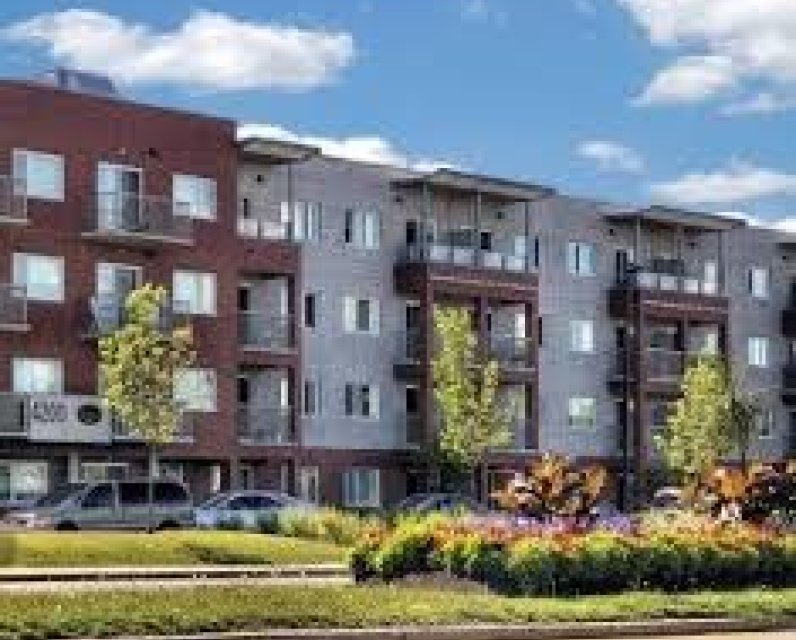Unpublished Opinions
Former OBE Trustee (1982-88), Ottawa City Councillor (1991-94), RMOC Councillor (1991-97), MPP Ottawa West (1997-99), Ottawa City Councillor (2000-2010). Economist, former Policy Analyst NHW (1982-91), former Executive Director Council on Aging (1999-2000), former Parliamentary Assistant to MP Mike Sullivan (2011-2015). Triathlete (including 4 iron distance triathlons), 3-time winner Rudy Award. Past-President Federation of Citizens Associations.
Alex Cullen: Council must end property tax unfairness for multi-res tenants

Ottawa City Council is setting the 2024 property tax rates at its April meeting. Here is the opportunity to correct a long-standing injustice, which is the multi-residential tax rate (for buildings with 7 or more units). The current tax rate is 1.4032 X the property tax, whereas residential properties (including condos) are taxed at 1.000 X the property tax rate. StatsCan says the average income of renters is: $61,000. For homeowners it is: $106,000. Why should renters be taxed at a 40% higher rate? In 2001, as a result of a City Task Force on Property Tax Issues (which I chaired) recommendation to eliminate this injustice, City Council recognized this injustice and began the process of phasing in reductions to the multi-residential rate. This stopped in 2021 - it needs to start again.
April 2, 2024 Finance & Corporate Service Committee Agenda: 2024 Tax Policy – Multi-residential Tax Rate
Dear Mayor Sutcliffe:
I am writing to you regarding the staff report 2024 Tax Policy & Other Revenue Matters that you will be considering at the Finance & Corporate Service Committee on April 2, 2024, in particular the recommendation to increase the Multi-residential tax rate from the current 1.4032 to 1.4083 X the property tax rate. This is a tax rate that should continue to be lowered (as past Councils have directed), not increased, based on equity considerations.
As you know, the Multi-residential tax rate is applied against properties containing 7 or more units. It does not include condominiums, which are taxed at the residential rate (1.000 X the property tax rate). Further, multi-residential properties built after 2000 are also taxed at the lower residential tax rate, according to provincial policy. According to City staff, about 14% of multi-residential properties in Ottawa fall into the New Multi-residential tax class.
As you know, landlords pay their property taxes through the rents they collect from tenants. Unlike homeowners, tenants do not receive a bill or notice of the amount of property taxes they pay in their rent. However, there is no justification to tax renters at a higher rate than residential property taxpayers.
This issue first came to my attention as a City and Regional Councillor in 1993, following the publication of the report of the Ontario Fair Tax Commission, which reviewed various taxation systems (including property taxes) in Ontario. With regard to the taxation of multi-residential properties, the Fair Tax Commission stated:
There is no justification for a distinction in tax rate policy on the basis of tenure enjoyed by the occupant of the dwelling unit under consideration.
In 1993 the then Regional Municipality of Ottawa-Carleton established a 17-member Ottawa-Carleton Fair Tax Working Group, of which I was Chair. We held public hearings, took advice from professionals and academics, and produced a 122 page report with 22 recommendations, including a recommendation to begin reducing the Multi-residential tax rate to the level of the residential tax rate. Regional Council agreed to a phased approach to reducing this differential.
In 2001, following amalgamation and a province-wide property re-assessment process, Ottawa City Council established a 12-member Task Force on Property Assessment & Property Tax Issues (of which I was Chair). Again, public hearings were held, professional and academic advice was received, and a 123 page report with 26 recommendations presented to Council (see attached), including a recommendation to phase-out the differential between the Multi-residential tax rate and the residential tax rate. City Council agreed to continue this phased approach to reducing this differential.
What is the basis for continuing to eliminate the differential between the Multi-residential tax rate and the residential tax rate? It is a matter of fairness.
According to 2016 Statistics Canada data, the average income for homeowners in Ottawa is $106,259, whereas for renters it is $61,400. There is no justifiable reason why renters in Multi-residential buildings (particularly those built before 2000) should pay through their rent taxes at a rate 40% higher than their neighbours.
This is further accentuated by the fact that, according to Statistics Canada data, 42% of renters already pay 30% or more of their gross income on shelter. Paying a higher rate of property taxation through their rents only exacerbates this problem.
The appendix of the staff report shows the history of the Multi-residential tax rate from 2002, starting at 2.1780 (!) and steadily declining until 2022 at 1.3960, where it began inching back up. The current staff report recommends that it increase from the 2023 level of 1.4032 to 1.4083, which is the wrong direction.
This Council should recognize that there is no justification to have the tenants of Multi-residential buildings pay (through their rents) property taxes at higher rates than their condo cousins. This Council should direct staff to continue the phased approach of reducing this unwarranted tax rate differential, with the ultimate goal of reaching the level of the New Multi-residential property tax rate, similar to the residential tax rate. Restoring the 2022 Multi-residential tax rate (at 1.3960) would be a small but correct step in this direction.
Thank you for your consideration of this important matter.
Yours truly,
Alex Cullen, Former Chair
City of Ottawa Task Force on Property Assessment & Property Tax Issues



Comments
Be the first to comment